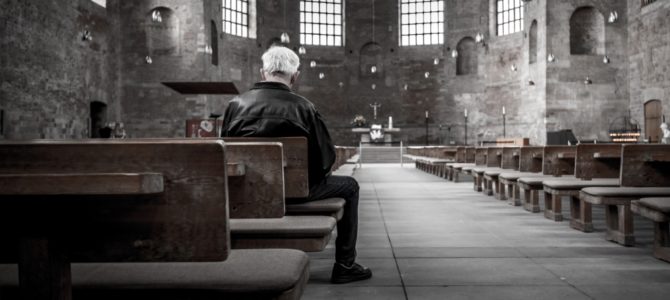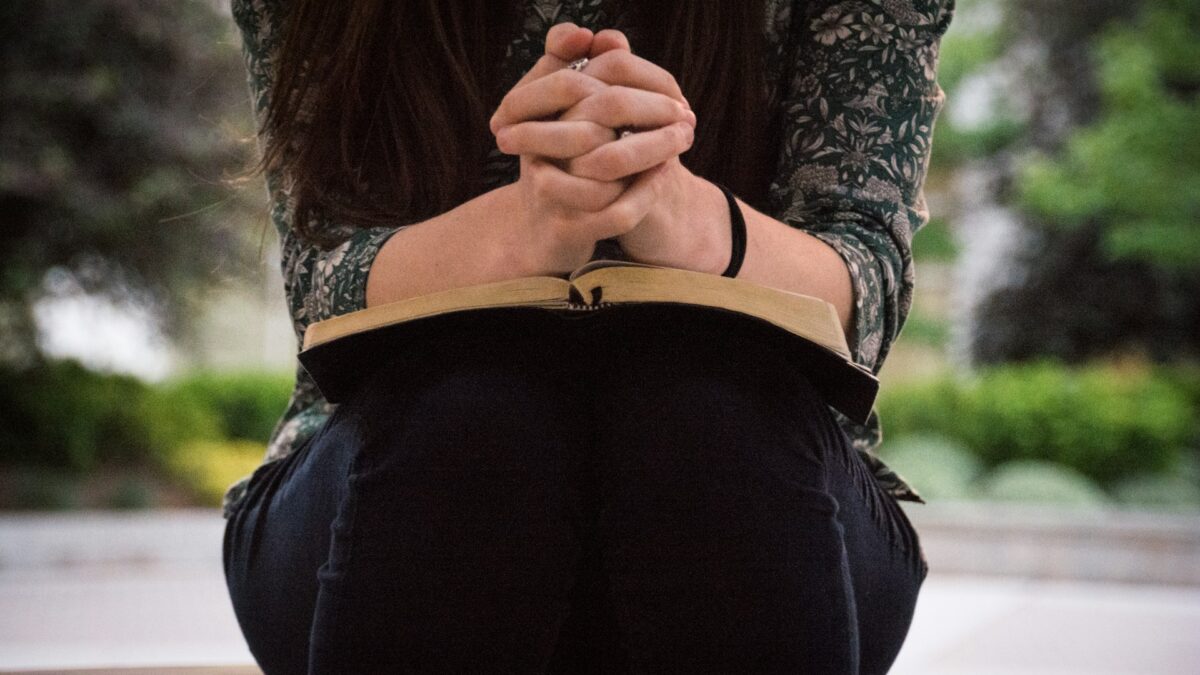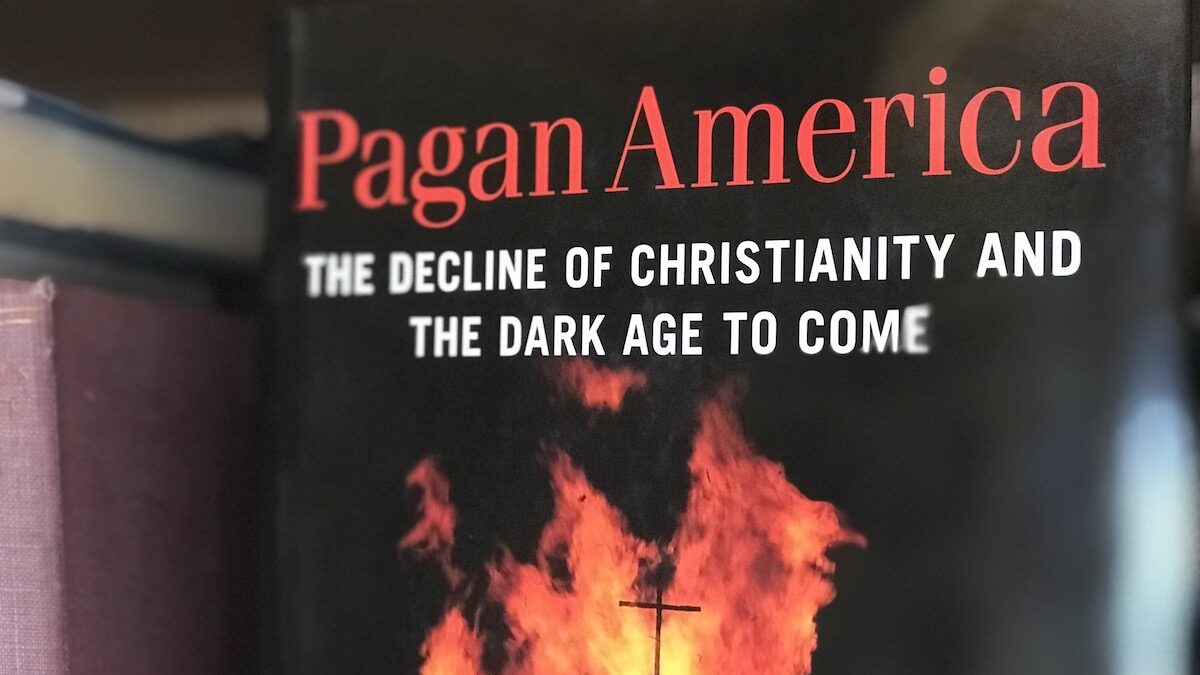
If Easter is about anything, it’s about hope conquering hopelessness, eternal life defeating death, and God’s grace prevailing over Satan’s condemnation. Easter is the best good news there is because Christ is risen. This is what Christians celebrate, and it is a message to widely proclaim with clarity and conviction.
Christians must also remember that the hope of Easter means nothing without the intense agony of Holy Thursday and Good Friday. This is one of the most powerful truths about Christianity — it is good news that fully recognizes the utter reality of the bad news.
Atheists and skeptics who accuse Christianity of being escapist prove they don’t understand what they criticize. Christianity is a profoundly realist faith, as deeply evidenced in the contrast between Good Friday and Easter Sunday.
Easter may be all bright, happy news, but we must appreciate the darkness of the backdrop upon which the resurrection of Jesus is painted. We easily embrace that Christ is victorious, but victory requires struggle. Recall, Holy Week begins with the Triumphal Entry, where Jesus is wildly celebrated as he enters Jerusalem. He is the people’s rock star, but things change fast.
The Savior of the world hits the lowest point of His life just days later. By Thursday evening Jesus is in the depths of despair. As Luke 22:41-44 relays:
And he withdrew from them about a stone’s throw, and knelt down and prayed, saying, ‘Father, if you are willing, remove this cup from me. Nevertheless, not my will, but yours, be done.’ And there appeared to him an angel from heaven, strengthening him. And being in agony he prayed more earnestly; and his sweat became like great drops of blood falling down to the ground.
“And being in agony, he prayed.” Consider these words about God Himself. That is part of the great wonder of the central truth of Christianity. Have you ever been in agony, seemingly without hope? Most of us have. But we can take great hope in the mysterious fact that God Himself — while remaining fully God — has experienced it too.
Holy Week shows us this is not necessarily a sign of lack of faith, of disbelief or disobedience, but merely a result of being human; something even God experienced in His humanness, even to the point of asking our Father to take away the suffering and trials that Jesus knew he would be facing in the next few hours.
Indeed, that’s what His request to “remove this cup from me” was about. Jesus knew and accepted that profound suffering could be and was a part of God’s good plan.
Few Christians fully appreciate a certain part of this remarkably angst-riven story. It is where we are told that Jesus, “being in agony,” perspired sweat “like great drops of blood falling down to the ground.” This is not just hyperbole.
There is an actual physiological condition recognized by medical science called hematohidrosis, which medical journals describe as “a very rare condition in which an individual sweats blood” which “may occur in an individual who is suffering from extreme levels of stress.” Leonardo Da Vinci noted it, describing a soldier sweating blood before going to battle.
A 2019 medical journal of dermatology highlighted a modern case, with photographs. Jesus experienced this kind of anxiety as He anticipated the cross, and He can easily relate to your anxiety. That is the kind of Savior we have.
What was the source of our Savior’s deep anxiety on Holy Thursday? Jonathan Edwards addressed this essential question in his 1739 sermon “Christ’s Agony,” explaining it wasn’t death or physical suffering that anguished Christ because, “Many of the martyrs have been crucified, as Christ was; and yet their souls have not been so overwhelmed.”
Perhaps because “Christ was going to be cast into a dreadful furnace of wrath” for the sins of mankind? This would certainly be greater suffering, but Edwards tells us that Jesus knew He would not be utterly forsaken to hell by His Father for carrying our sin within Him, for Jesus “calls him ‘My God, my God!’ knowing that He was His God still, though He had forsaken Him.”
The reason was, as Edwards explains, that, as we read in Matthew 27:45-46, “God withdrew his comfortable presence from Christ, and hid His face from Him.”
No human words can fully describe or even comprehend what this forsaking truly meant. It appeared that Satan was about to be victorious in driving a very real and consequential wedge between two Persons of the Trinity. Jesus’ desperate cry on the cross was the sweetest music Satan’s ears could ever hope to take in. The God of Christianity knows what it is like to suffer, and deeply so. He can relate to your anguish.
The victorious God of Easter morning can relate all too well to whatever anguish you might be suffering on your own Holy Thursday and Good Friday. As a citizen: the weight of your vocation, and the unknown trials of your personal life. As a spouse, parent, or child: the responsibilities of your family. As an employee: the duty to your co-workers.
Your community, reputation, and service to others can too often bring trials of great anguish, sometimes so deep we wonder if anyone can relate. They make us wonder if we are even in God’s will.
But agony is a part of the Christian story. It was a part of God’s very own story. The dripping of His holy blood on Thursday evening proves that fact, and dramatically so. The hope of Easter morning tells us it is only for a season.









